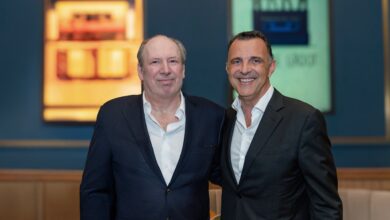
Editorial Opinion
In today’s fast-paced society, it seems that everyone is enmeshed in a never-ending cycle of busyness. Whether in one’s personal or professional life, being busy has evolved into a badge of honor, a symbol of productivity, and even a barometer of one’s self-worth. Underneath this impression of unending activity, there lies a darker reality: a busyness culture that is detrimental to our health, relationships, and overall enjoyment.

The Perpetual Race
In the modern office, success is now equated with being busy. Employees are recognized for putting in lengthy shifts, doing several jobs, and being available all the time. Rest and leisure are discouraged because it is expected that one be “on” and attentive to emails, messages, and demands at all times. The distinction between business and personal life has become hazy, and there is constant pressure to keep up.
This workaholic culture is not exclusive to the workplace. We are overcommitted and overwhelmed in our daily life. We cram our calendars full of social commitments, extracurricular activities, and never-ending to-do lists. As if being idle is a sin, we are continuously looking for approval and demonstrating our value by flaunting how busy we are.
The Fallacy of Productivity
Ironically, activity does not always translate into output. Our concern with productivity frequently causes a drop in the caliber of our work. Rushing through work causes us to lose focus and pay attention to detail, which results in mistakes, inefficiency, and even fatigue. Our ability to think creatively and innovatively decreases as a result of the continual pressure to check things off of our never-ending to-do lists.
Being overburdened becomes the norm as a result of the busyness culture. Stress and anxiety rise as a result of our relentless pursuit of deadlines and hurried commitment-making. As we ignore self-care and make self-care sacrifices, our mental health suffers. Ironically, despite the appearance of productivity, this persistent state of bustle impairs our capacity to perform at our best.
The Erosion of Relationships
Relationships suffer as a result of our culture of activity. We overlook the people who matter most—family, friends, and loved ones—because we are so preoccupied with ourselves and our own bustle. As we strive to find time for meaningful talks and true connections, superficial interactions take their place. To keep up with our busy schedules, we grow aloof and distant.

The Road to Recovery
A mentality change is necessary to escape the hectic culture. Recognizing that being busy is not an indicator of achievement or value as a person is the first step. Setting priorities, setting boundaries, and concentrating on what matters most will lead to true productivity. It entails accepting the benefits of leisure and rest, giving ourselves space to refuel. It entails prioritizing quality over quantity and keeping our own wellbeing in mind.
Organizations must contribute to the development of a more positive workplace culture. Employers should support flexible scheduling, encourage work-life balance, and foster a culture that prioritizes workers’ emotional and physical health. This calls for a change from a quantity-driven to a quality-driven approach, taking into account the fact that a rested and content workforce is more productive and creative.
Conclusion
Our well-being, relationships, and overall satisfaction have all been negatively impacted by the busyness culture that has permeated every part of our lives. It’s time to question the current state of affairs and reevaluate what it means to be truly productive. Change our attention from being busy to being purposeful, from quantity to quality, and from being worn out to being satisfied. Then and only then will we be able to escape the never-ending rat race.




